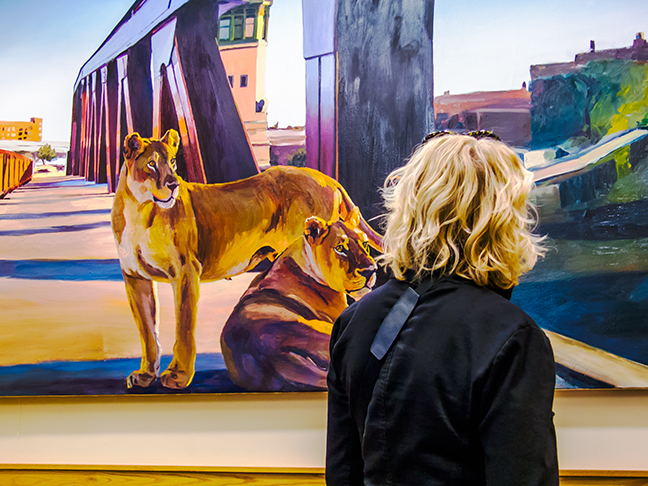
Per Merriam-Webster and the Oxford Pocket Dictionary, the word “infection” is understood to imply contamination by a disease causing agent. Those same dictionaries define “disease” as a condition or process that inhibits normal healthy functioning. Where the chain of definitions break down is when we ask what constitutes “normal” and “healthy”? “Typical”, “adhering to a standard”, and “free of disease” do not bring us closer to a truly useful understanding of infection. Most of us have a more or less working knowledge of what a biological infection is and how to treat it. We observe symptoms that involve changes in how we feel or to how we look in the mirror. Our bodies rally their defenses, often pumping fluids to where the infection is in order to cleanse the area, surround the invading organism or agent, and devour it. We may attempt to assist by applying folk remedies, or by visiting a doctor who may prescribe a scientifically tested treatment. And, if any or all these defensive measures work, we both feel and look better. If they do not, we either die or learn to live with permanent affliction. But, what happens when an ecological or sociological system is infected? What happens when, say, uncaged lions take up residence on our city streets? What happens when invasive species begin to populate our waters, forests, and fields? What happens when our own waste products begin to sicken the environment upon which we depend? What happens when scores of refugees from war or disaster stream into our towns? What happens when terrorists attack or “crazies” begin spraying bullets? What happens when our institutions become manned by citizens who don’t believe in the goals and purposes of our institutions, but instead seek to undermine those institutions or corruptly misdirect institutional resources and powers for personal gain? And, what happens when up and coming generations, in their expanding ignorance and material preoccupation, lose the thread of what it takes to hold a sustainable society and ecosystem together for the benefit of all? For any social group, culture is the sum of its collective wisdom. And most cultures have preferred remedies for dealing with infection. Other than prayer, purification, banishment, and war are the three main ones. War has horrendous costs, purification seldom works, and banishment only works if there is somewhere left to banish infecting agents to. It’s interesting to note that within our most advanced cultures, these same three largely ineffective remedies for dealing with infection are today being advocated by our loudest, most shrill political voices. How very sad and frustrating. We really can do better. If we look to nature, a remedy that seems to work over and over again throughout eons of time is mutual sustainable accommodation. Two or more agents butting heads in competition eventually decide to share, each making do with less than everything. A balance is achieved wherein each finds some viable niche for itself that doesn’t necessitate annihilating every other agent, just balancing its own activity in opposition to the activity of other agents. And in the process, the overall ecology wherein it resides becomes more diverse, more complex, and better able to withstand stresses. The only problem is that accommodation is a very slow process, often taking generations. It won’t work in the short term against severe traumatic infection. Interestingly, nature does offer some insight into dealing with severe traumatic infection. It turns out that invading agents are invariably self-limiting. They depend on something, a preferred food perhaps. When that something is abundant, the infection spreads. When that same something becomes scarce, the infecting agent crashes and dies off. If at a later date the infecting agent resurges, it may adjust, in order to more closely approach sustainable accommodation. For example, antibiotic-resistant bacteria do this. So, at its most simplistic level, nature’s lesson for dealing with many of the infections currently plaguing our various societies and the environment is to find what those infecting agents depend upon, feed upon, and pull the plug, cut off the supply. No war. No banishment. No purification. Just seek to limit the infecting agent’s ability to grow. Beyond that, nature’s advice is to prepare and adjust, in some concrete structural sense, to long-term sustainable accommodation to the threat of destabilizing infections. One thought on prayer. If prayer is practiced in the sense of supplication to some higher power or being in hopes that higher power will solve our problems for us, prayer is very likely to be just as ineffective as those other three cultural remedies. But if prayer is practiced in the sense of meditation, allowing one’s brain to do what it was meant to do, synthesize new and possibly more effective ideas, then it might very well prove effective. And be personally satisfying to boot. P.S. The above image includes portion of a painting by artist Eileen O’Donnell of Elmhurst IL, shone at Art Prize in Grand Rapids MI, September 2012. |
• Posted: Sep 29, 2015 00:08:56
• Comments Welcome
• Vote CoolPhotoblogs
• Purchase a Print
• Share
Monday, September 24th, 2012 Grand Rapids MI USA |